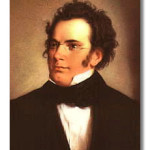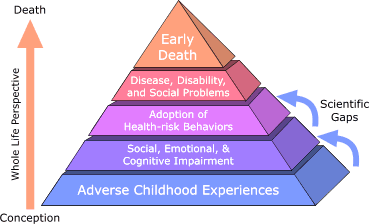…Bruce Perry: Rhythm Regulates the Brain
…Bruce Perry & Children’s Choirs
…Dr. Perry: Music Makes Your Case, Jan. 31
…Music Therapy, Premature Babies, & Child Trauma
...Stardust – Dr. Tara Brach, Parts 1 & 2, Jan. 17 & 24
Adult Attachment Disorder in Music History: It’s astonishing how many musical stories from Mozart to Motown and everything else, are text book cases of Attachment Disorder. I’ll be posting recordings of good examples. Franz Schubert’s “Der Wanderer” (words and audio below) was my theme song for decades, and now I’ve finally learned why. While unattached, I was a stranger to everyone, no matter how far I traveled or where I roamed. Because it was inside me. So now, with help, I can heal it — because it’s inside me.
A debate on music history is on, starting in the comments at end of my blog “Enter the Dragon,” Chapter 1 conclusion from my book “Don’t Try This Alone.” One commentator observed that Dan’s behavior in my blog “Enter the Dragon” seems to be typical for a lot of famous opera folk (click for blog, scroll to end). I was delighted. Yes, Henry Cloud calls it the “broken people picker,” I replied.
“Second, I’m dying to finish this book – so I can get to the sequel, ‘Don’t Try This Alone – The Music Edition.’ Way before soap opera TV, Hamlet had the same problem [as Dan]. Ophelia found it crazy-making [she has a famous mad scene]. In Mozart’s ‘Marriage of Figaro,’ Marceline falls in love with her disguised son Figaro, but then it’s discovered he’s her son. Now the Count’s whole ballgame is blown — Natural Law steps in and no matter how tyrannical the Count is, everyone starts singing ‘His mother? His MOTHER??’ (Sua madre? Sua madre?) Suddenly the Count, who thought he was God, can’t compel Figaro to marry his mother! Beethoven has fun with it in Fidelio; Marzelline falls in love with Leonore disguised as a boy. ”
More recently our opera-going commentator has been posting revelations on Carmen and Eugene Onegin – two more outrageous tales of Attachment Disorder. “Don Jose [hero in Carmen] is a prime example,” I replied. “He could have had a wonderful life with poor sweet Michaela BUT… [he runs off with the slut Carmen]. Of course Carmen is no slouch at failure to attach herself. Her most famous song ‘Habanera’ ? Ouch. She sings: ‘As soon as you love me, I won’t love you anymore…’ Sounds like Dan, don’t it? Wonder what all their childhoods were like?”
FRANZ SCHUBERT, “DER WANDERER”
Translation below; sung by Alexander Kipnis, bass/baritone
Schubert’s “Der Wanderer” graphically portrays the longing of the insecurely attached soul for some home base within his own heart: “The Land that speaks my language.”
[Click on PLAY arrow above left and wait; song plays after 10 seconds of silence… time for a nice deep breath…]
Download (Firefox users: right-click link, select ‘Save Link As…’
Internet Explorer users: right-click link, select ‘Save Target As…’ ):
Schubert’s Der Wanderer (.wma)
Translation (by me)
Ich komme vom Gebirge her, [I come from the mountains here]
Es dampft das Tal, es braust das Meer [The valley ends, the sea roars]
Es braust das Meer. [The sea roars.]
Ich wandle still, bin wenig froh, [I wander silent, little happy,]
Und immer fragt der Seufzer “Wo?” [Always my sighs ask “Where?”]
Immer, “Wo?” [Always, “Where?”]
Die Sonne dünkt mich hier so kalt, [The sun sets to me so cold]
Die Blüte welk, das Leben alt, [Flowers fade, Life grows old]
Und was sie reden, leerer Schall, [All their talk is empty sound]
Ich bin ein Fremdling überall. [I am a Stranger everywhere.]
Wo bist du, Wo bist du, [Where are you, where are you]
Mein geliebtes Land? [My beloved Land?]
Gesucht, geahnt, [Searched for, longed for,]
Und nie gekannt? [And never known?]
Das Land, das Land [That land, that land ]
So hoffnungsgrün, [So green with hope,]
So hoffnungsgrün, [So green with hope,]
Das Land wo meine Rosen blühn [That land where all my roses bloom]
Wo meine Freunde wandelnd gehen [Where all my friends wander]
Wo meine Toten auferstehen [Where all my Dead rise up again]
Das Land das meine Sprache spricht [That Land, my Language speaks]
O Land, wo bist Du? [Oh Land, where are you?]
Ich wandle still, bin wenig froh, [I wander silent, little happy,]
Und immer fragt der Seufzer,“Wo?” [Always my sighs ask Where?]
Immer, “Wo?” [Always, “Where?”]
Im Geisterhauch tönt’s mir zurück[A ghostly sigh calls back to me]
“Dort, wo du nicht bist, [“There, where you are not,]
“Dort, ist das Glück.” [There, is Joy.”]
16,230 total views, 1 views today



